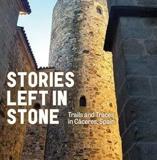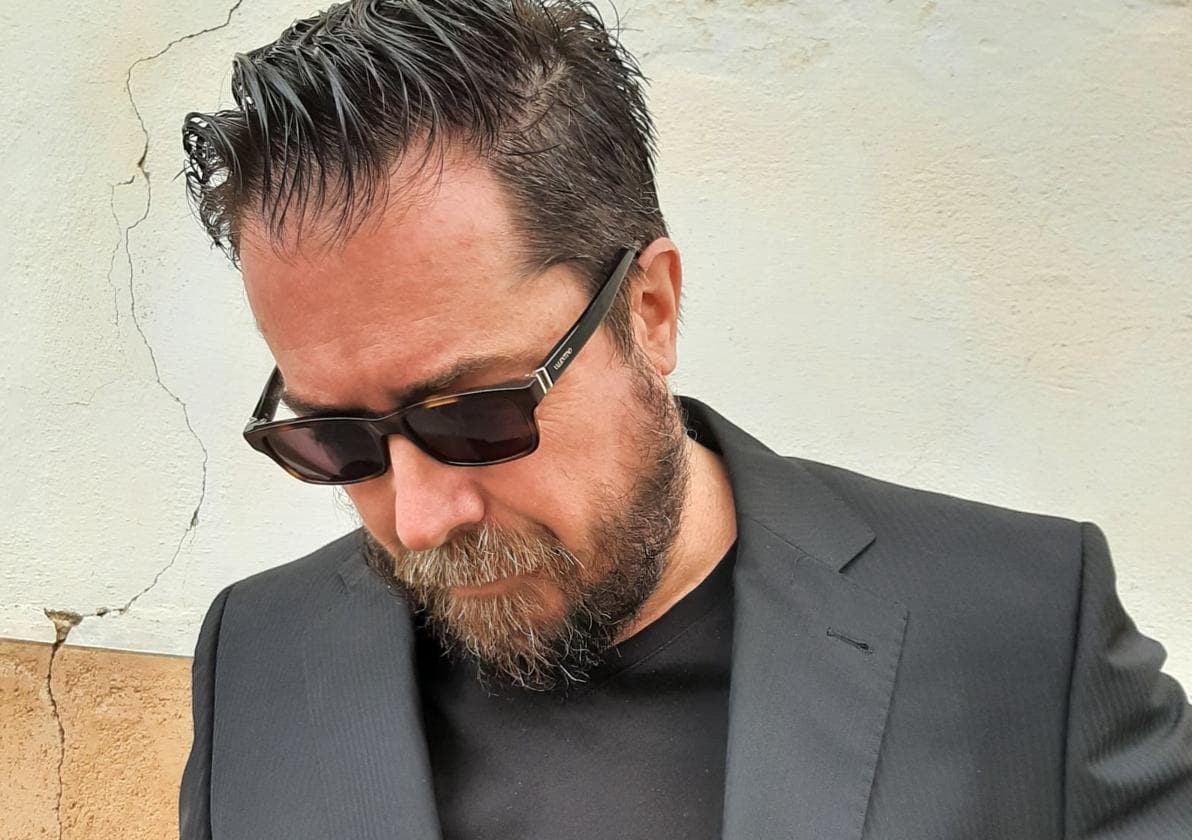Troy Nahumko: 'As a writer, you can't bite your tongue for fear of upsetting people'
Born in Canada in 1973, the journalist has recently published a book about Cáceres, the city where he has lived and worked since 2007
Tony Bryant
Friday, 22 November 2024, 16:29
There have been numerous books published by foreign writers about Spanish customs, culture and cuisine, along with travel guides, books about the Civil War, and architecture, among a wide variety of other subjects. Many of these books focus on the subjects linked to top destinations like Madrid, Santiago de Compostela, Barcelona, Granada, Malaga or Seville, but this is not the case with a new book about Cáceres (Extremadura), a city "not so popular with foreign tourists".
Authored by Troy Nahumko, an award-winning writer based in Cáceres, Stories Left in Stone: Trails and Traces in Cáceres is a book in English about the city where the author lives, writes and works. Cáceres is notable for the Palaeolithic rock art found in its Maltravieso cave, some painted by Neanderthals more than 60,000 years ago, which is what inspired the 51-year-old Canadian journalist to write the book.
"The experience in the cave was what gave me the idea for the book, which I began during the lockdown. I had to crawl at least 100 metres into this cave, and I thought, why would someone leave a hand print here? What story is this person trying to tell? They were definitely trying to tell a story of some sort, or leave their mark, but why in such an obscure place?" Troy tells SUR in English.
"I got tired of travelling a lot and seeing little, so I came to Europe to reflect"
Troy moved to Cáceres in 2007, after travelling to diverse countries such as Libya, when Gaddafi was in power, where he worked in a branch of Newcastle University. He started writing professionally in Yemen, because "there were no correspondents there", publishing chronicles in newspapers around the world and writing travel stories. In Yemen, he also worked as an English teacher during the Gulf War in 2003, which he declares was the "axis of evil", although he is keen to point out that "these were the most generous people I have ever met".
He found a similar warmth and friendship on arriving in Cáceres, although he had visited Spain long before he decided to settle here.
"My relationship with Spain started in the mid-1990s when I toured the country as a professional blues musician. I was already earning a living as a musician. I lived in New York, but spent ten months a year touring the world, but I got tired of travelling a lot and seeing little, so I came to Europe to reflect. I came back to Spain at the turn of the millennium and decided to stick around for a while. I met my ex-wife, who is from Cáceres, and went to live abroad for a bit, before returning. I like to find weird, out-of-the-way places," he declares, bursting into laughter.
Born in Edmonton, Alberta, Canada, Troy's father was a British broadcaster who used the stage name of Chuk Chandler, a name that has gone down in radio history for being the journalist who accompanied John Lennon and Yoko Ono during their week-long 'bed in' in Montreal in 1969, a non-violent protest against wars in a bid for world peace.
"Extremadura is an empty spot on traveller's maps. It is a rare find"
As a writer and photographer, Troy set out on his own path, contributing to newspapers and media such as Lonely Planet, The Globe, The Toronto Star, The Calgary and El Pais, along with a current bi-weekly column for the Spanish newspaper HOY. He is also the only foreigner to win the Mercedes Calles-Carlos Ballestero journalism prize for an article published in the Irish Times.
"When I started publishing in HOY it was a challenge, because I had always written about travel for readers who weren't from where I was writing about. In HOY, I am the one from abroad and I have been writing for more than ten years for people from here. I offer a different point of view, which has occasionally prompted my haters to tell me to go back to Canada," he says, roaring with laughter.
Raising his two daughters, and teaching English in Cáceres, which he says is "less conservative than it used to be", Troy is concerned at the destruction at the hands of developers of his adopted home.
"Extremadura is an empty spot on traveller's maps. It is a rare find, yet many involved in its preservation despair at what already has been lost to careless development," he says.
Personal narrative
His new book also analyses how locals characterise their city and leave their own marks. Through personal narrative as an "outsider writing for the insider", Troy shares sociological, archaeological and historical insights, speaking with locals from all walks of life and intertwining their stories with his own.
"If you ask the right questions, you will always uncover interesting stories." I think this is the free pass we get as foreigners, because they think of you differently. I have been in places around the world that were a little hairy, but when you opened your mouth, they would be curious, and you'd be OK," he says, breaking into a smile.
A need to be vocal
Today, he is well established in Cáceres and says that he has "never really felt like an outsider in Extremadura", although he is still sometimes referred to as the 'guiri'.
"That's one of the reasons I like being here, because the people of Extremadura are extremely welcoming. However, I often dare to say things that maybe they don't say. You can't bite your tongue for fear of upsetting people. We need to be vocal, although there will always be those who disagree. Feedback and criticism are designed to make situations better. As a writer, I just take it in my stride. I love this place, and I love these people, and I think this comes through in my work," he concludes.
A narrative that paints a vivid portrait of Cáceres

Stories Left in Stone explores the lives, histories and artistic legacies of Cáceres, Europe’s third-largest intact medieval city. Troy Nahumko has lived in Cáceres, a Unesco World Heritage Site, since 2007. The book begins at the Cave of Maltravieso, where prehistoric art stirs a profound curiosity about the city’s rich tapestry of past and present. Nahumko’s narrative paints a vivid portrait of the people and heritage of this lesser-known province of Spain, as he surveys its history, 12th century Moorish relics, fortified palaces, 60,000-year-old handprints, cuisine, and its stunning natural beauty.
Through interviews with locals, migrants, and experts, he shares sociological, archaeological, and historical insights about the city he calls home.
“It is a book about Cáceres in which I do not tell my opinion, it is told by the residents,” the author tells SUR in English.
